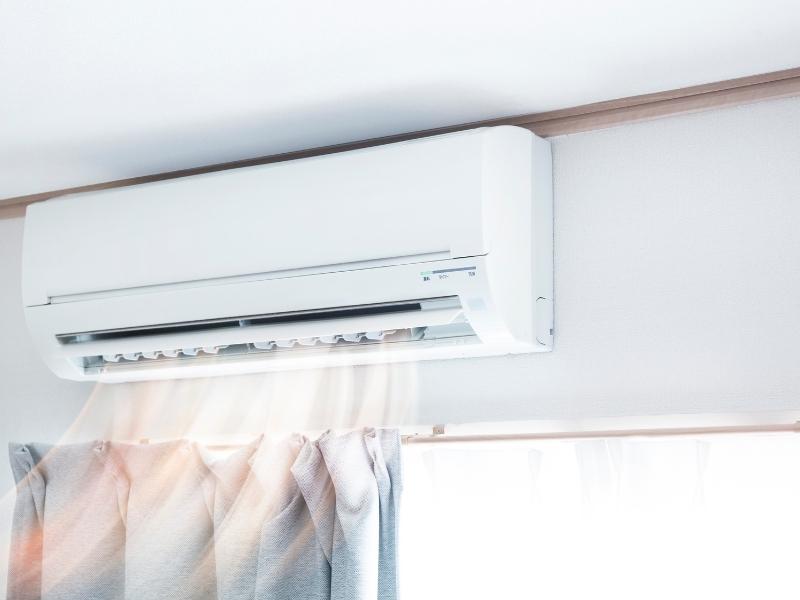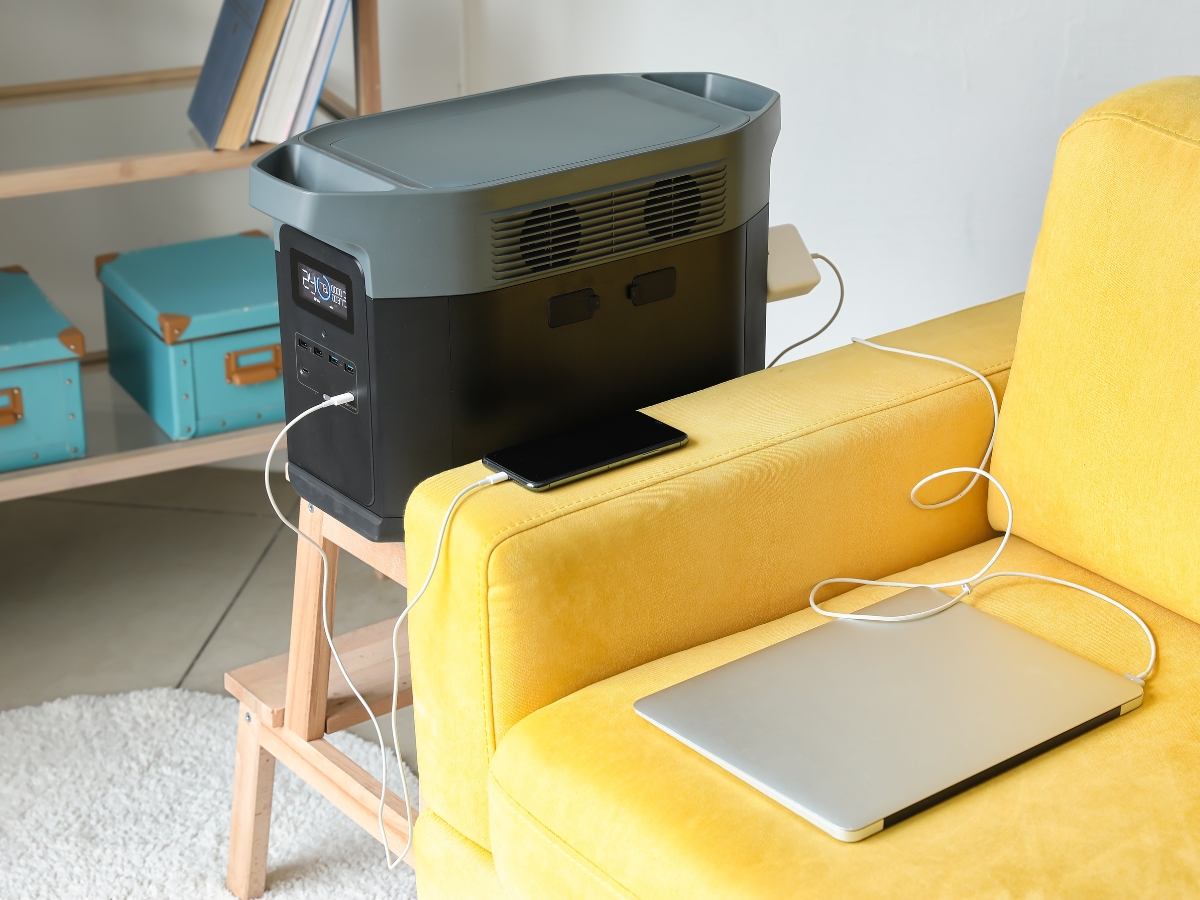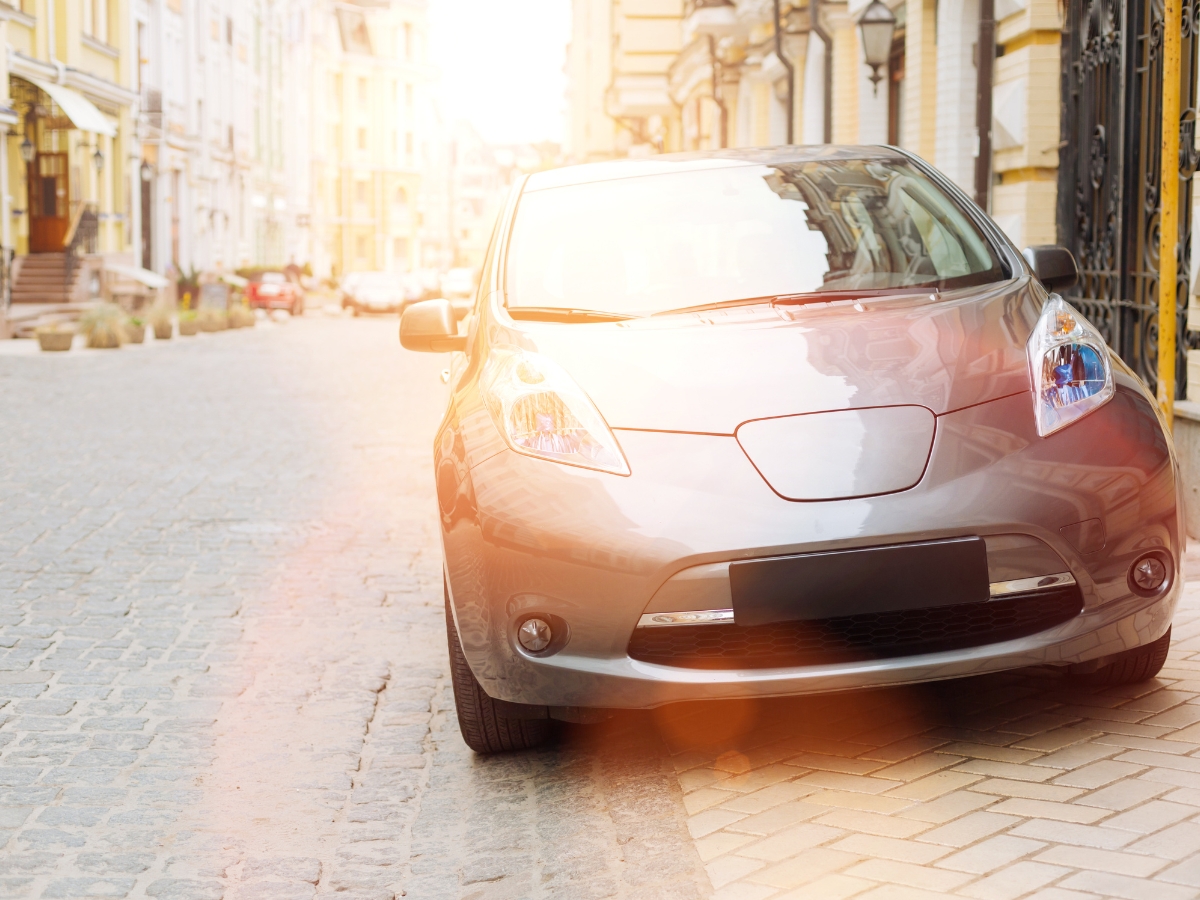When power starts to become a problem, the first thing everyone will miss is the air conditioning that can’t run. Choosing a generator that can run your house and your air conditioning is one of the challenges that all homeowners and RV owners have to face when choosing.
A 4500-watt generator will be able to run most air conditioners as well as provide enough power for your house to continue running. Smaller generators will only be able to run small air conditioners and may not be capable of keeping your fridge and other equipment running alongside it.
Choosing the best generator to keep your house cold or hot can be a troublesome affair, with many people not always realizing that these systems require a lot of power.
- How to run just the ari conditioning from a generator
- Powering your whole house and your air conditioner
- The reason air conditioners need larger generators
- How many watts a generator needs to operate
- Powering air conditioners with solar power
- Connecting your generator to the air conditioner
Getting the right air conditioning unit will mean that you have enough power to keep the lights on and the air-cooled.

What Size Generator To Just Run An Air Conditioner?
If you want to get a separate generator tasked with running the air conditioner, you will need slightly smaller systems to keep them powered. Many people have started creating systems like these to help create a better balance.
There are three levels of generator that you can get for your air conditioner, each one allowing you to run smaller or larger systems. We always recommend getting something slightly stronger than what you will need, allowing for some headroom should there be a spike in a draw.
2000 Watts For Smaller Ac Systems
Smaller air conditioners are usually only meant to cool down one room or a smaller office, with the air conditioner plugging into a wall socket. You only need a 2000-watt generator that specifically powers the air conditioner to keep everything cool for these systems.
The systems will be a 5000 to 7000 BTU that does not require a generator larger than 2500 watts to power effectively. With the unit using less power as the room cools down, the power draw will drop; smaller generators can handle this drop in power usage much better than larger units.
3000 Watts For Medium Ac Systems
When you have air conditioners that need to cool down a whole house or larger rooms, then you will need at least a 3000-watt generator to run them. These air conditioners are more likely to continually keep running, having to cool down new rooms or space always gathering heat.
A large air conditioner is anything from 10 000 to 15 000 BTU and will be capable of providing enough cold air to cool down most regular spaces. Most smaller homes worldwide have one central unit of this size that is in charge of cooling down the entire house.
4000 Watts Or More For Large Ac Systems
When you have a larger air conditioner, you will need at least a 4000-watt generator to keep it running when the power goes out. Usually, these will be systems needed to cool down entire office buildings or when you have more than one air conditioner having to cool down multiple rooms.
We always recommend that you get a stronger generator than what may be needed because of energy draw spikes. Any air conditioner above 15 000 BTU will need a 4000-watt or larger generator to keep them powered on for the whole day or night.
What Size Generator To Power The Ac And Your House?
If you hope to have a generator capable of powering your house and your generator, you will need to get significantly larger generators. This is because of the initial spike that all electronics have when starting and the constant draw of power that the house will have on the system.
In general, it is never recommended to run your air conditioning from the same generator that is powering the rest of your home.
This is because the generator will not be capable of powering the entire house and keeping the air conditioner going, causing the system generator to crash continually.
3500 Watts For A Small Air Conditioning
If you have a small air conditioning unit in a bedroom that can be sealed, you may be able to power the house and the Air Conditioning. However, you will need to get at least a 3500-watt generator to power everything without damaging the equipment that you are using.
Further, you will not be able to run many things while the air conditioning is running; the power drawn from the generator may become too much.
Most people will only run the fridge and the air conditioner simultaneously to ensure that they are comfortable and the food stays cold.
4500 Watts For Medium Air Conditioning
If you have a whole-house unit or an air conditioner that can cool down most of the central locations in your house at once, you need something much larger. A 4500-watt generator should be capable of keeping your lights on and the rooms all staying as cold as possible.
It should be noted that when you have a generator of this size, you need always to have some significant amount of power drawn on the system.
Your TV system may be impressive but will usually not draw enough power on its own to have the generator work at peak efficiency.
6000 Watts Or More For Large Air Conditioning
Large offices and homes with one or more air-conditioning units needing power from the central power system will require a 6000-watt generator. These machines are large enough that even some of the largest air conditioners cannot fully draw their power.
This will mean that you can have multiple computers, TVs, fridges, and the air conditioning running without having to stress about the power supply.
When running such a large generator, the noise and the maintenance will also be something you need to calculate before buying it and installing it.
Why Do You Need Larger Generators For Air Conditioning Systems?
When buying a generator for your home, you can usually calculate the power consumption for everything based on their average amount of power draw.
The generator will have the ability to provide a peak amount of power, which means that when the fridge needs 1000-watts to start, the generator can handle it.
Every electric system has a spike in power draw when first starting, which a generator can easily provide when they are starting up. Air conditioners do not work the same way, with most systems having a variable in how much power is consumed constantly, creating fluctuating power draws.
When an air conditioner is turned on, it will usually use the maximum power that it can, up to 1000-watts or more, for a small generator.
As it cools the room, it may use less power, but if the room heats up for any reason at all, the air conditioner will resume drawing the maximum amount of power.
How Many Watts Does It Take To Run A RV Air Conditioner?
Most RVs have small air conditioning units that are run from a central location to cool down the entire vehicle. These central air conditioning units are usually small enough to be run for a few hours from the internal batteries that the RV has to power everything else in the system.
At most, to run the air conditioning of an RV, you will only need a generator capable of providing 2000-watts. Further, the generator will be able to keep the air conditioning going and charge the batteries to make them ready for the next stop on your adventure.
We always recommend having one of these small generators ready for your RV to ensure that you will not be abandoned in the middle of the woods with a flat power system.
Many people assume that the air conditioner won’t use too much power when the opposite is true.
Can A Solar Power System Run Air Conditioner In Your House?
If you have a few smaller air conditioners around your house and an inverter large enough, solar power can easily power your air conditioning. However, it should be noted that the draw from some air conditioner units will mean that your batteries are almost always going to be nearly flat.
When building your solar power system, it is always best to consider exactly how much power the air conditioning will neat at peak power draw. If you assume that a bit of overhead will be enough, then one or two rainy weeks may mean you are powerless for several days.
If you already have a solar power system and want to get air conditioners, we recommend upgrading the solar system rather than buying a smaller air conditioner.
Providing more power is always easier with a solar system than staying effective with something that uses less power.
What Size Generator To Run A Portable Air Conditioner?
Oddly enough, portable air conditioners require more power than mounted or permanent air conditioners will need. A portable air conditioner needs more power because of the smaller size of the unit being used and how it works to cool down the air in any room.
Usually, a 3000-watt generator is recommended when using portable generators in your house or RV. This will ensure that the unit constantly has enough power to keep the room as cool as possible, with many producing hot air when not given enough power.
We have seen several people complain about portable air conditioners that are constantly breaking when hooked up to a generator.
When not hooked up to a power source capable of providing enough power, the air conditioner starts to malfunction as the fans and motors are straining to continue working.
How To Power Air Conditioners With A Generator?
Now that you know what kind of generator you can use with your air conditioners, you need to know how to connect the two. There are two main ways to power anything with a generator, each one providing different levels of safety and effectiveness.
Many people forget that even if the generator is small, the power that it is delivering can be extremely dangerous to work with. We recommend providing power to your air conditioner in two ways, plugging it into a wall socket or plugging it directly into the generator.
Plugging Into The Mains
The most common way that you may be able to provide power is from the generator to the air conditioner. You can plug the generator into any wall socket of your home, and it will be able to provide power to every appliance in the house.
There are a few caveats to doing this, you will have to be disconnected from the municipal line, and you will have to ensure that all of the larger appliances are also shut down.
The generator can also cause damage if it surges because the power is skipping many breakers and fuses in your home.
Plugging Directly Into The Generator
Usually, your generator will be close to where your air conditioner unit is kept, with most units having plugs for outside sources of power. If you want to power only the air conditioning, then you can plug it into the generator in this way and ensure that your entire house is cooled.
This method means that the generator and the air conditioner are hooked up directly to each other, without anything else being capable of drawing power.
This means that your air conditioner can use all the power that the generator can provide without something else interfering.
References
- What Size Generator Is Required To Run An Air Conditioner? (Generatorscan.Com)
- Backup Generator Buying And Sizing Guide | Hiller Electrical (Happyhiller.Com)
- Powering Air Conditioning With A Generator (How-To) (Generatorgrid.Com)
- What Size Generator To Run 5 Ton Ac Unit? (5,000+ Watt) (Learnmetrics.Com)
- Generatortips.Pdf (Hoecoop.Org)
- What Generator Do You Need To Power Your Caravan Air Conditioner? – Blue Diamond (Bluedm.Com.Au)
- Can A Generator Run An Ac Window Unit? (Sfgate.Com)
- What Generator Size To Run An Air Conditioner Or House? (Generatorswift.Com)




